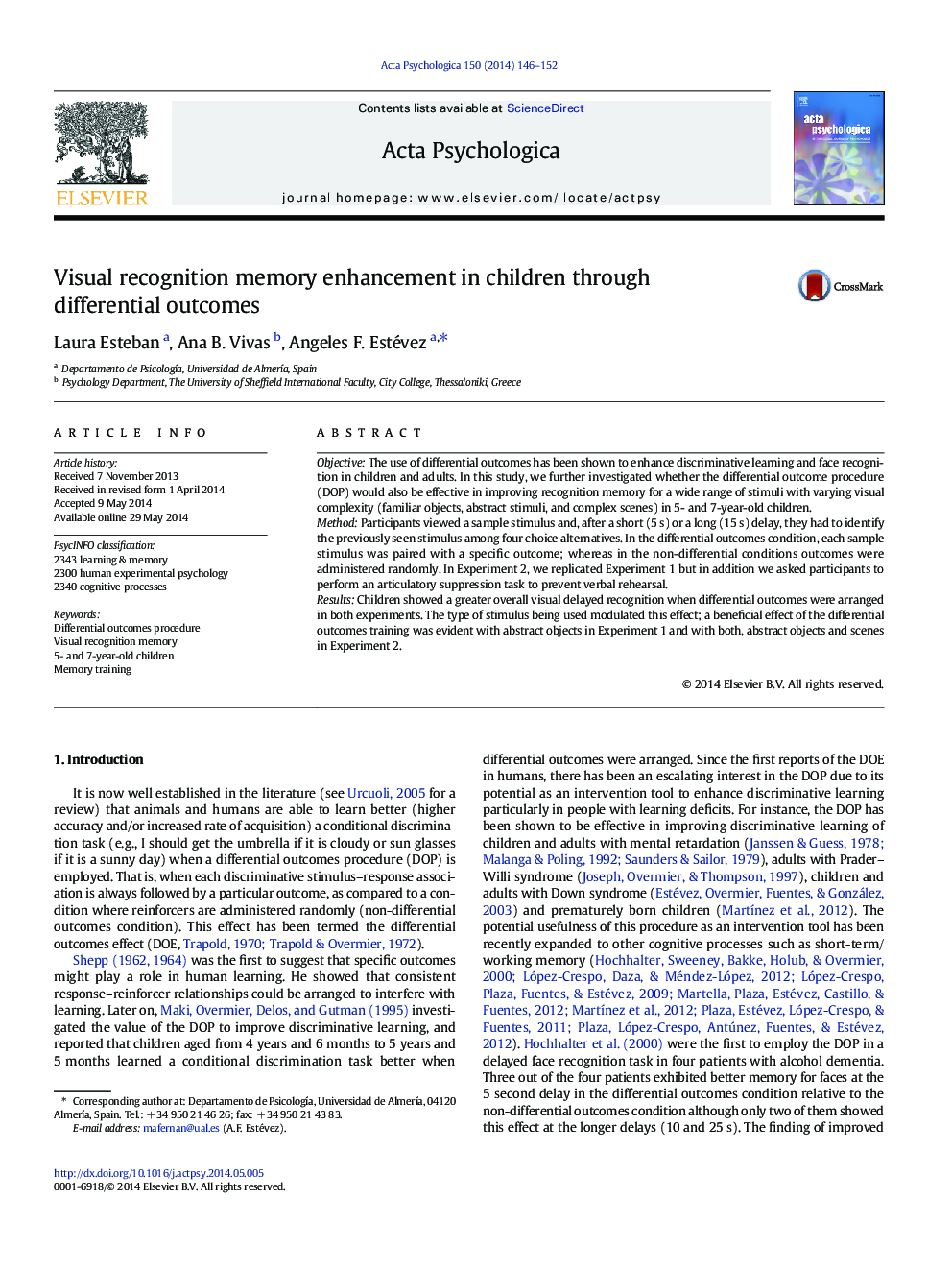| Article ID | Journal | Published Year | Pages | File Type |
|---|---|---|---|---|
| 919743 | Acta Psychologica | 2014 | 7 Pages |
•We study the effect of using specific outcomes on children's recognition memory.•Stimuli with varying visual complexity are used.•Children exhibit better recognition performance when specific outcomes are arranged.•The visual complexity of the to-be-remembered stimulus modulates this effect.
ObjectiveThe use of differential outcomes has been shown to enhance discriminative learning and face recognition in children and adults. In this study, we further investigated whether the differential outcome procedure (DOP) would also be effective in improving recognition memory for a wide range of stimuli with varying visual complexity (familiar objects, abstract stimuli, and complex scenes) in 5- and 7-year-old children.MethodParticipants viewed a sample stimulus and, after a short (5 s) or a long (15 s) delay, they had to identify the previously seen stimulus among four choice alternatives. In the differential outcomes condition, each sample stimulus was paired with a specific outcome; whereas in the non-differential conditions outcomes were administered randomly. In Experiment 2, we replicated Experiment 1 but in addition we asked participants to perform an articulatory suppression task to prevent verbal rehearsal.ResultsChildren showed a greater overall visual delayed recognition when differential outcomes were arranged in both experiments. The type of stimulus being used modulated this effect; a beneficial effect of the differential outcomes training was evident with abstract objects in Experiment 1 and with both, abstract objects and scenes in Experiment 2.
